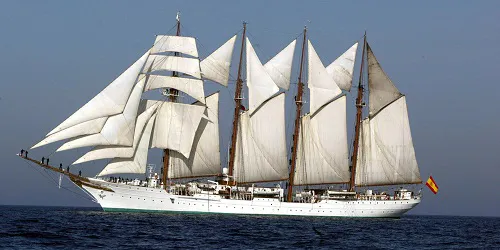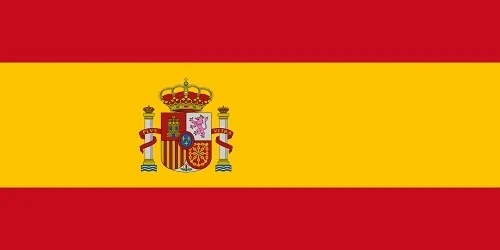-
Cruise Line InformationCarnival Cruise Line Cruising Guide & Tips Alcohol Prices & Selections Unlimited Soda Program Cheers! Beverage Program Deck Plans Dry Dock Schedule Menus Food Recipes Beverage Recipes Secret Decks What's Included? What's Extra?
Norwegian Cruise Line Cruising Guide & Tips Deck Plans What's Included? What's Extra?
Royal Caribbean International Cruising Guide & Tips Food Recipes Beverage Recipes Menus
COVID-19 Cruise Line Bankruptcies -
World's Notable ShipsWorld's Largest Cruise Ships World's Largest Military Ships World's Longest Service Cruise Ships World's Most Recent Cruise Ship Decomms World's Newest Active Cruise Ships World's Oldest Active Cruise Ships World's Oldest Active Military Ships World's Upcoming Cruise Ships COVID-19 Cruise Ship Decommissions
-
Guest RegisterIf you are reading this it means you have not yet registered. Please take a second to REGISTER (it's FREE). You will then be able to enjoy all the features of Cruising Earth.
You should upgrade or use an alternative browser.
Juan Sebastián de Elcano #4 World's Oldest Active Military Ship - Cruising Earth

Juan Sebastián de Elcano - Spanish Navy
#4 World's Oldest Active Military Ship
Juan Sebastián de Elcano is currently ranked #4 in the list of the World's Oldest Active Military Ships.
4
In Service:
1928
(97 Years of Service)Ship StatisticsTrack Juan Sebastián de Elcano
In Service: August 01, 1928
Gross Tonnage: 3,673 GT
Length: 371.00 Feet
Beam: 43.00 Feet
Speed: 17.5 knots / 20.1 mph
Complement: 390
Juan Sebastián de Elcano Historical Brief
Introduction
The Spanish Navy training ship Juan Sebastián de Elcano is a four-masted topsail schooner that has played a pivotal role in the training of Spanish naval cadets and the promotion of Spain's maritime heritage. Named after the Spanish explorer Juan Sebastián de Elcano, who completed the first circumnavigation of the globe, the ship has a storied history that spans over nine decades.
Construction and Early Years (1927-1930)
The Juan Sebastián de Elcano was constructed as a response to the need for a modern training ship for the Spanish Navy. Its keel was laid in the Echevarrieta y Larrinaga shipyard in Cádiz, Spain, in 1925. The design of the ship was influenced by the earlier German training ship Niobe, with modifications to meet the specific requirements of the Spanish Navy. The ship was launched on March 5, 1927, and commissioned into service on August 29, 1928.
The vessel measures 113 meters in length, with a beam of 13.1 meters and a draft of 7.3 meters. It displaces 3,770 tons and carries over 3,000 square meters of sail, making it one of the largest and most impressive sailing ships in the world. Its four masts are named Blanca, Almansa, Asturias, and Nautilus, reflecting significant naval battles and ships in Spanish history.
Early Voyages and Role in Training (1930-1936)
The Juan Sebastián de Elcano embarked on its maiden voyage on April 1, 1928, under the command of Captain Manuel de Mendívil y Elio. This initial voyage took the ship across the Atlantic Ocean to America, with stops in various ports to foster diplomatic relations and demonstrate Spain’s naval presence. The ship's primary mission was to serve as a training vessel for the cadets of the Spanish Naval Academy, providing them with essential seamanship and navigation skills.
During its early years, the Juan Sebastián de Elcano quickly established itself as a premier training platform. The cadets aboard the ship participated in rigorous training routines that included sail handling, navigation, and life at sea. This hands-on experience was invaluable in preparing the future officers of the Spanish Navy for their careers.
Spanish Civil War and World War II (1936-1945)
The Spanish Civil War (1936-1939) and World War II (1939-1945) were challenging times for the Juan Sebastián de Elcano. During the Civil War, the ship was used primarily for logistical and transport missions rather than training. It remained loyal to the Spanish Republican Navy, but the conflict significantly disrupted its operations. After the war, the ship required extensive repairs and refitting to restore it to its former glory.
World War II further limited the ship's activities. Spain's neutrality during the war meant that the Juan Sebastián de Elcano did not participate in combat operations. However, the ship continued to serve as a training vessel whenever possible, maintaining its crucial role in the education of Spanish naval cadets.
Post-War Period and Global Recognition (1945-1992)
Following World War II, the Juan Sebastián de Elcano resumed its primary mission as a training ship. The post-war period saw the vessel undertake numerous voyages around the world, visiting ports in Europe, the Americas, Africa, and Asia. These voyages were not only training exercises but also served as diplomatic missions, promoting goodwill and cultural exchange.
One of the most significant achievements during this period was the ship's participation in the Operation Sail events, particularly the one held in 1964 to commemorate the New York World's Fair. The Juan Sebastián de Elcano became a symbol of Spain's rich maritime heritage and its commitment to training excellence. Its participation in international tall ship races and regattas further enhanced its reputation.
Modern Era and Continued Legacy (1992-Present)
In the modern era, the Juan Sebastián de Elcano has continued to fulfill its dual role as a training vessel and a diplomatic ambassador for Spain. The ship has been modernized and maintained to ensure its seaworthiness and safety, with periodic refits to update its navigation and communication systems.
The ship's voyages often include a circumnavigation of the globe, retracing the route of its namesake, Juan Sebastián de Elcano, who completed the first circumnavigation with Ferdinand Magellan's expedition. These voyages are significant not only for the training they provide but also for the historical and cultural connections they highlight.
The Juan Sebastián de Elcano has also been a key participant in the celebrations of significant historical events. In 1992, the ship took part in the quincentenary celebrations of Christopher Columbus's voyage to the Americas. This event underscored the ship's role in preserving and promoting Spain's maritime history.
Training and Education
Training aboard the Juan Sebastián de Elcano is rigorous and comprehensive. Cadets undergo a curriculum that includes traditional seamanship, navigation, meteorology, and leadership. The experience of sailing a large, square-rigged vessel is invaluable in developing the skills and character necessary for future naval officers.
The ship's training program emphasizes the importance of teamwork, discipline, and resilience. Cadets learn to work together in challenging conditions, fostering a sense of camaraderie and shared purpose. The lessons learned aboard the Juan Sebastián de Elcano are intended to prepare cadets for the diverse and demanding situations they will face in their naval careers.
Cultural and Diplomatic Role
Beyond its training mission, the Juan Sebastián de Elcano plays a significant role in Spain's cultural diplomacy. The ship's visits to foreign ports are often accompanied by cultural events, exhibitions, and receptions that showcase Spanish heritage and promote international understanding. These events highlight the ship's status as a floating embassy, representing Spain's maritime traditions and its commitment to fostering global connections.
The Juan Sebastián de Elcano's participation in international events such as the Tall Ships' Races, Operation Sail, and other maritime festivals helps to strengthen Spain's ties with other seafaring nations. The ship's presence at these events is a reminder of the shared maritime history and traditions that connect countries around the world.
Preservation and Future Prospects
As the Juan Sebastián de Elcano approaches its centenary, efforts to preserve its historical integrity and operational capabilities continue. The ship undergoes regular maintenance and periodic refits to ensure it remains seaworthy and safe for training and diplomatic missions. These efforts are crucial in preserving the ship's legacy for future generations.
The future prospects for the Juan Sebastián de Elcano are promising. The ship will continue to serve as a training platform for Spanish naval cadets, providing them with the skills and experience necessary for their careers. Its role as a cultural and diplomatic ambassador will also endure, promoting Spain's maritime heritage and fostering international understanding.
Conclusion
The Juan Sebastián de Elcano stands as a testament to Spain's rich maritime history and its commitment to training and excellence. Over its nine decades of service, the ship has trained countless naval cadets, participated in significant historical events, and promoted cultural exchange and diplomacy around the world. As it continues to sail the world's oceans, the Juan Sebastián de Elcano remains a symbol of Spain's enduring maritime legacy and its dedication to the values of seamanship, leadership, and international friendship.
Cruising Earth Website Updates
The cruising industry is ever changing. The information contained on this site is updated frequently and kept as accurate as possible. If you believe any of the information is outdated, inaccurate, or you believe you have additional information that could be useful to other cruisers, please post the updated/new information in our Community Forums. Please use this same link to post any questions you may have.

